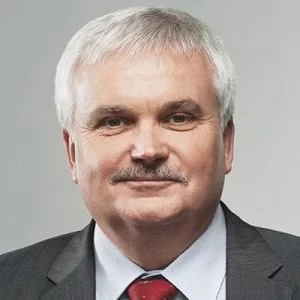He studied at the Faculty of Construction at the Wrocław University of Technology. He received his doctorate in technical sciences in 1982 and his habilitation degree, in 1993. He was awarded the title of professor of technical sciences in 2003.
At the Wroclaw University of Technology, he was director of the Institute of Civil Engineering, dean of the Faculty of Civil Engineering, pro-rector, and rector.
He is the author or co-author of more than 490 papers documented in the DONA system including, more than 180 scientific published papers and more than 290 research reports performed for the benefit of the national economy. Most of the professor’s research is related to the broad expansion, modernization, and renewal of underground infrastructure networks in urban areas.
He has presented Polish achievements in the field of research and construction and modernization of underground infrastructure of cities at numerous conferences at home and abroad, including the Czech Republic, the Arab Emirates, Spain, India, France, Canada, Germany, Thailand, and the USA.
He has promoted 7 doctorates in technical sciences. He has served as a reviewer in 10 proceedings for the awarding of honorary doctorates, 7 for the awarding of the title of professor, and several for the degrees of doctor habilitated and doctor of technical sciences.
Among other things, he was elected to serve as deputy chairman of the Committee on Civil Engineering of the Polish Academy of Sciences and president of the Polish Association of Trenchless Technologies, of which he remains a member. Currently, he is also a member of the Foundation Council of the Polish Association of Civil Engineers (PZITB), chairman of the PZITB Science Committee, honorary chairman of the College of Rectors of the Universities of Wroclaw and Opole, member of the Scientific Council of the Research Institute of Roads and Bridges, and member of the Subcommittee on Underground Works of the Polish Committee on Geotechnics NOT, affiliated with the International Tunneling Association.He is also a member of Academia Europaea, an honorary doctorate from Ton Duc Thang University (TDTU) in Vietnam, and an honorary professor at Obuda University in Budapest.
He holds a license to perform independent design functions in structural and civil engineering specialty (79/UW/90) and the title of nationwide construction expert in the field of building structures and underground infrastructure of cities (decision no. 108/97).
Impact of Demographic and climate change on Cities’ underground infrastructure
The presentation, which is only a contribution to a broader discussion, pointed out the role and possibilities for the effective functioning of the underground network infrastructure of cities in the context of demographic and climate change. Undertaking a consideration of the elements of underground construction from this angle is exceptionally advisable, as it can determine the conditions for at least partial adaptation of them to the dynamically occurring needs of the operation. Analyses of solutions currently underway require the selection of solutions that are most favorable not only in terms of the cost of their implementation, but also, in terms of their ability to intercept rainwater caused by “urban flooding,” to carry away increased amounts of sewage, to supply more water and energy, and to provide connectivity. A complete analysis requires taking into account existing underground structures (such as tunnels, pedestrian underpasses, underground garages, etc.,), which very often create constraints that are difficult to overcome, as well as newly designed for the adopted network infrastructure solutions to cause the least possible hindrance to the development of the underground space of cities in the future. The indicated tasks are very difficult, requiring interdisciplinary activities, the use of modern technologies (including trenchless), and given the dynamics of demographic (increase in the number of people living in cities) and climatic changes (the effects of warming) should be solved as soon as possible.
